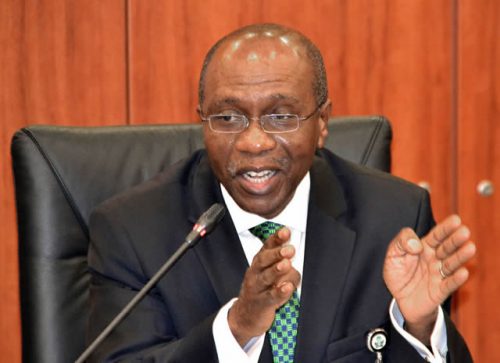The Monetary Policy Committee (MPC) of the Central Bank of Nigeria (CBN) on Tuesday retained the Monetary Policy Rate (MPR) at 13.5 percent, leaving other monetary rate parameters, including the asymmetric corridor at +200/-500 basis points around the MPR; the Cash Reserve Ratio (CRR) at 22.5 per cent, and Liquidity Ratio at 30 percent.
The CBN governor and Chairman of the Committee, Mr. Godwin Emefiele, while briefing the media on the decisions taken at the end of the two-day meeting of the committee in Abuja, said that members agreed unanimously that maintaining the current monetary policy stance was necessary to sustain improvements recorded in the economy over the months and ensure the economy’s stability in the months ahead.
He explained: “Considering the recovery in market interest rate, growth in domestic credit, among other positive development, the MPC felt that there will more gain in the short to medium term to holding MPR at its current position
.“The MPC is therefore of the view that sustaining the MPR at the current level is crucial for better understanding of the impetus of growth before deciding on any probable variations.
“The MPC also feels that holding its current policy position offers pathways for appraising the defects of its policy to encourage lending by the banking industry without varying the policy rates as the downside risk to growth and caution on inflation looks stable”, Emefiele added
According to him, the committee’s consideration to hold the MPR at 13.5% rate is further justified by positive indices in the economy which are partly linked to the actions already taken by the apex bank in recent months, including the current policy of loan to deposit (LDR) ratio, which he said had increased bank loans to key sectors by over N1.1 trillion between June and October 2019, among others.
While expressing the apex bank’s support for some of the Federal Government’s recent policy measures, including the recent closure of the country’s land borders , Emefiele noted however that given the volatility in the global oil market and its implications for crude oil futures market, the committee urged the government to reconsider its 2020 budget oil price benchmark of $57 per barrel to build buffers.
Similarly, the banker said that the committee expressed confidence that despite the weakness in the external sector, efforts to ramp up domestic production, through various fiscal and monetary measures will mitigate the adverse effects of the external economic developments impact on the domestic economy.
On the rising inflation trend, the CBN governor said that the MPC noted the need to intensify some measures to reduce food prices, particularly those with potential to increase support for local production of rice, fish, poultry, palm oil, tomatoes, cassava, maize, yam and others.
Emefiele also spoke on the committee’s stance on the need for government to sustain its backward integration policy in the milk industry and other key sectors of the economy, saying that the apex bank’s recent policy restricting milk import from forex allocation is yielding desired results as some of the companies, including Friesland WAMCO, are now acquiring lands to source for their milk production inputs locally.






